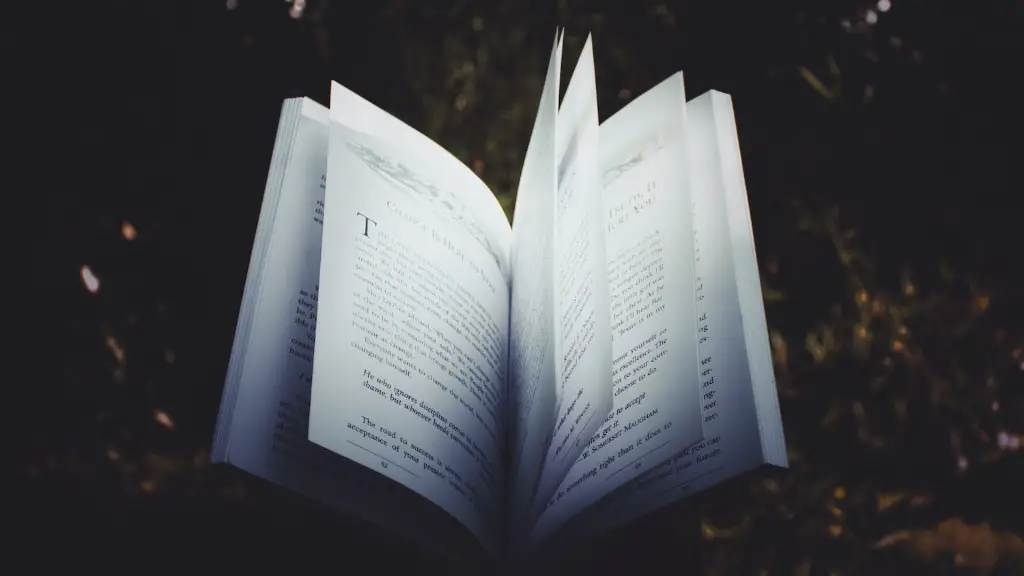Understanding Poetry
Poetry has been a form of literature since the dawn of writing, and takes many forms, expressing a variety of emotions and ideas in vivid and inventive ways. The universal appeal of poetry is evident in its remarkable presence throughout history and its power to evoke powerful emotions. From understanding complex philosophical ideas to expressing powerful romantic feelings, poems can do more than just entertain. But why do we read and write poetry?
Poetry allows us to explore the depths of expression. Where literature can reach a certain level of insight, poetry often surpasses it. Through its condensed and intense styles, poetry can convey feelings and thoughts that are much more difficult to express in prose.
The structure of traditional poetry can be used as a structure for communication and understanding of profound emotions. The limitation placed on the quantity of words used encourages the reader to concentrate on distilling the purest thoughts and feelings. This can lead to profound emotional imprints on the reader—both in terms of understanding their own emotional states, and the feeling of being connected with a poet in a very personal way.
There is something profoundly intuitive about poetry. For example, a poem might reflect the innermost thoughts of a person, thoughts and feelings that they cannot openly express. This ability to express oneself through poetry provides often much-needed catharsis, while at the same time leading to a deeper understanding of what others are going through. People often take solace in the fact that someone else might have experienced something similar, and it can help provide a feeling of comfort and understanding.
The structure of a poem allows for more imagination and nuance. Poetry does not rely on conventional grammar rules and conventions, so it also allows for a great degree of freedom for exploration and creativity in expressing oneself. Because of this, it is an important tool for self-expression, allowing the reader and the poet to explore innermost thoughts and feelings.
It is important to emphasize that poetry, at its best, is a way of processing the complexities of life. It is an unstructured way of communicating our deepest emotions in a way that can lift us up and help us to deal with life’s experiences. Through poetry, individuals can examine, process and understand aspects of life that often go undetected, as well as provide insight into our own self-awareness and understanding. One of the best things about poetry is that it can provide a space of emotional safety and understanding—a place to explore our thoughts and feelings without having to make sense of them.
Expression of Ideas Through Poetry
Poetry is a powerful medium to express complex ideas that can be difficult to express in straightforward prose. For example, writes can explore abstract ideas such as faith, love, and justice with vivid metaphors and creative expression. By boiling down thought-provoking ideas into simple phrases, a poem can be much more powerful than its subject matter initially implies.
Moreover, the structure used in poetry is a perfect medium for exploring personal perspectives on events, whether those events be big or small. By using crafted words, a poet can paint a unique picture of how their experiences have shaped their point of view. For example, with just a couple of lines, a poet can powerfully evoke the shock, terror and sadness of a natural disaster—more powerfully than any prose-style description could.
The use of sound and musicality in poetry also adds power to the message. Words are carefully chosen and arranged in order to evoke an emotional response from the readers. A rhyming poem, for instance, can be quite emotionally powerful, as the perfect rhymes and rhythm help to underscore the emotion of the words.
In addition, the complex imagery used in poetry often brings together distinct elements of the depicted subject. When used effectively, it can produce an emotive response in the reader. For example, a depiction of a war-torn landscape might include a symbol of hope and the promise of renewal, while also highlighting the pain and destruction of warfare.
Finally, poetry can be used to explore a wide range of topics, from the personal to the political. There is no limit to the topics that can be addressed in a poem, but whatever the topic, it is often much easier to convey ideas in a poetic format than in prose.
Communication of Personal Feelings
Poetry is an important way for individuals to explore and communicate their innermost feelings. In fact, the ability to communicate one’s feelings and thoughts has often been seen as one of the key roles of literature and poetry. By using metaphors, imagery, and other poetic devices, a poet is able to express complex emotions in a simple and direct way.
It is also possible for poets to address topics that are not so personal, such as social issues. For example, an issue such as poverty can be addressed in a poetic way by focusing on the human condition that results from it. By focusing on a single experience or emotion, the poet is able to bring to life the experience in a much more powerful and emotive way.
For example, a poem might focus on the experience of a person who is struggling financially, a poem can highlight all the details of their life in a way that makes readers empathize with their situation.
Moreover, by using poetic devices such as alliteration, parallelism, or repetition, poets can focus the reader’s attention on a certain aspect or idea. This can be a powerful and effective way to draw attention to important social and political issues, as well as to powerful personal stories.
Finally, poetry can also be used to explore questions of faith and religion. Poetry has been used for centuries to express spiritual ideas and beliefs, and the language and imagery used often allows for a deeper exploration of faith than plain prose does.
The Power of Poetry
The power of poetry to explore and communicate various themes has led to its popularity throughout the years. By its very nature, poetry is able to express deeper truths, feelings and ideas than traditional literature, and it can be an important form of communication in our personal or collective lives.
Moreover, the ability to express oneself and explore emotions can be incredibly empowering, allowing a poet to make sense of their own experience and better engage with life. The cathartic nature of poetry can also provide an outlet for the emotions that often cannot be expressed in other ways.
Finally, the universal appeal of poetry demonstrates its power as a means of expression. Poetry can be a powerful way to communicate emotions and ideas, and can also serve as a tool of personal reflection. Thus, reading and writing poetry can be an important part of our intellectual, spiritual and creative development.
Conclusion
The unique power of poetry to express complex concepts, emotions and ideas makes it an essential part of our cultural heritage. By providing a safe space for exploration and understanding, poetry can provide a sense of comfort and connection. Through its ability to explore the depths of expression and its universal appeal, poetry is truly an art form like no other.





